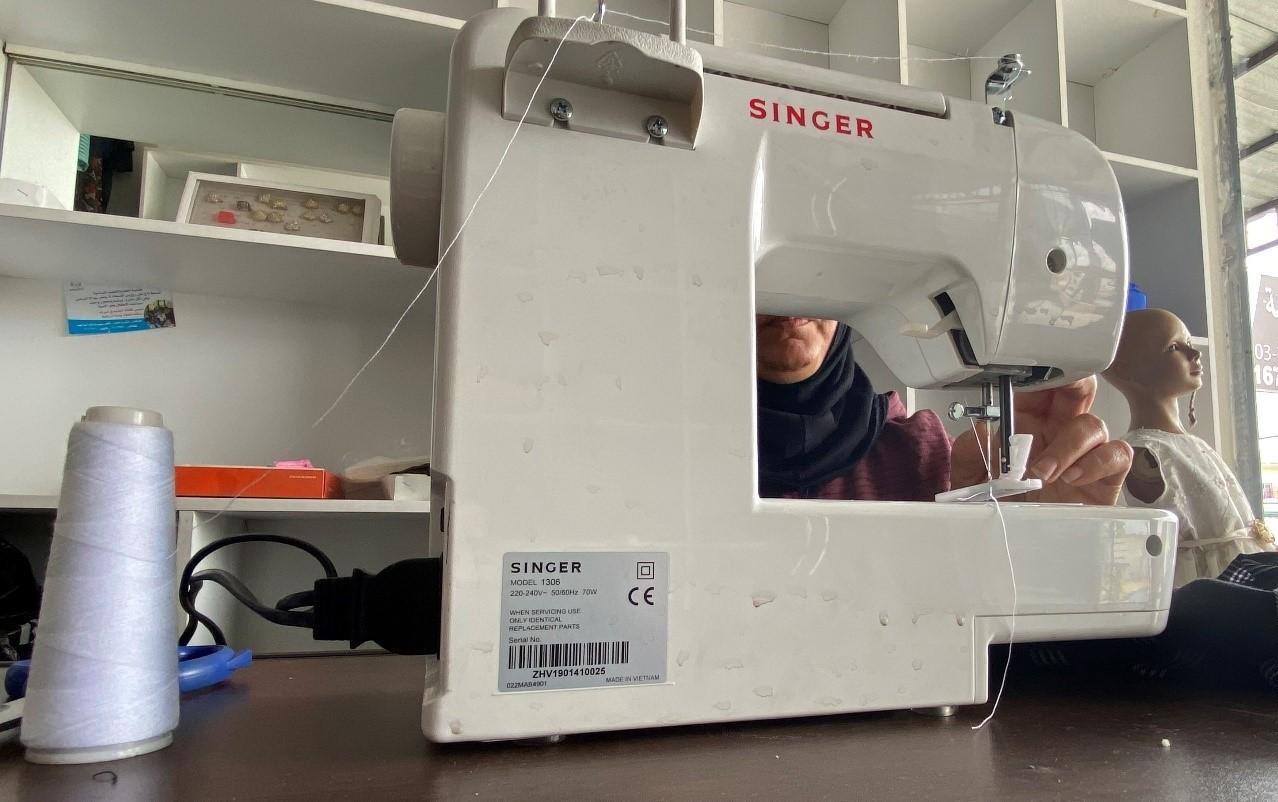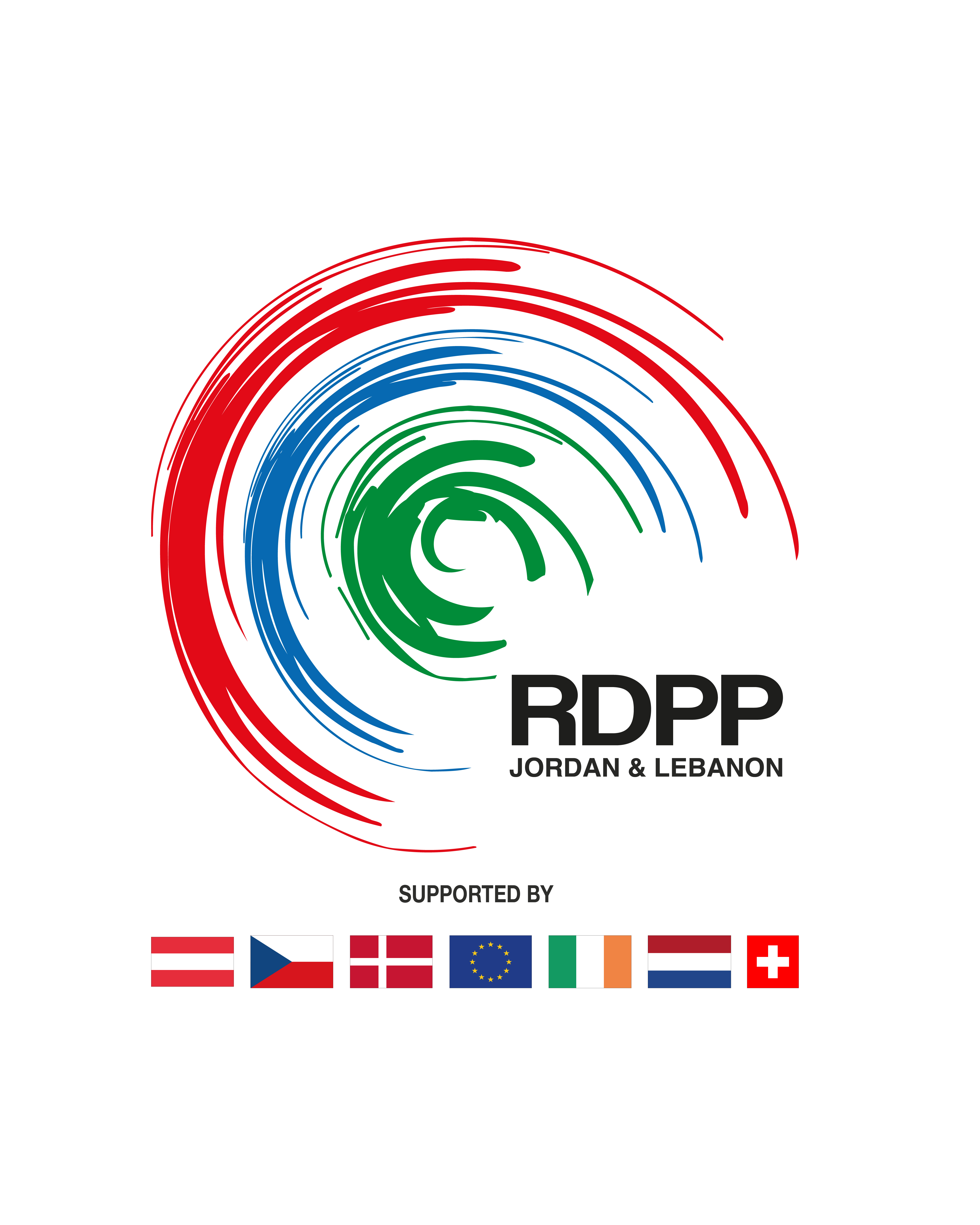
<
>
30 Years Old Dream Came True / Lebanon
—
It did not occur to Fatima and Samar, 30 years ago, that they would open their own shop. Back in the 80s, the ambition of young women was to work and be financially independent, while still being present at home to take care of their children. Tailoring at home was trending for being convenient to both female tailors and their customers, where the house becomes the safe space to get sizes’ taken, new dresses tailored and old ones fixed. It was a skill to pass on from one generation to another, and one house could be famous for having excellent tailors for decades. Throughout 30 years, Fatima and Samar followed the trend and were tailors at their homes, but they wanted to be extraordinary and have a shop on their own with customers coming from all areas in North Lebanon to fix and buy clothes. They knew that although they had been in the business for so long, there were new techniques that they needed to learn to enter a larger market, and new machines they had to have to keep up with a larger demand.
A friend told Fatima about LebRelief and FabricAid’s upcycling training in North Lebanon. Excited to join the training, Fatima encouraged her relative and now business partner, Samar, to join as well so they could learn the skills together. “My friend encouraged me to sign up because she believed I can go further with my work. I needed that push to grow what I started 30 years ago in a business and taught to Samar. We started together and want to stay together, and now we’re teaching my son and Samar’s relative the skills we know”, says the 55-years old Fatima. “I was Fatima’s neighbour 30 years ago and we were family even before I married her relative. I was 14, when she started to teach me everything I know today. I was learning the skill for fun at first, then it became my source of income, and then with the LebRelief training I am starting to think that we can go further with the skills we have, so how about we open a shop and work outside our houses?”, adds the 42-years old Samar.
The project “Second Chance”, which is implemented in partnership between LebRelief and FabricAid and with the support from RDPP, aims to create job opportunities for Lebanese and Syrians through expanding the value chain for second-hand clothes. The project works on the value chain from beginning to end, by starting with building and placing more collection bins across Lebanon, through increasing the sorting and upcycling capacities of FabricAid, to rehabilitation of shops selling second-hand clothes to provide a more decent shopping experience for the customers. As part of the project, 150 people with basic sewing skills were provided with training on upcycling of second hand clothes, provided with sewing machines to be able to upcycle clothes from their homes, and afterwards joined the project for 32 days of short-term employment upcycling of second-hand clothes for FabricAid.
From their involvement in the project, Fatima and Samar earned 1,280$ between them; an amount that they added to their savings to be the start capital for their own second hand shop in Bebnine, North Lebanon. Seeing the advanced work and the number of customers they gained after the training, relatives and neighbours in Fatima and Samar’s community encouraged them to open their shop, and started to promote for it once it did. “Every penny we received from the work with FabricAid was paid to rent the shop and buy a small generator. The sewing machines we received from LebRelief are here in the shop, in addition to the old two Samar and I had at home. The shop is running for the past 6 months now, and the money we’ve put in it is worth it”, says Fatima. As the word was spreading, the shop gained more customers from outside Bebnine: “People come to the tailor they trust; our old customers still come to us and they tell their friends and family about our shop. Therefore, whoever knows us and trust our work will come even from nearby villages. Now we have customers from Tripoli, Menieh and Der Ammar”, adds Fatima.
“Sabsabi”, Fatima’s family name is what they called their shop. The small shop they rented is both an exhibition for the second-hand clothes they fixed, showing off new ones they tailored, booming of colourful threads and needle, and the hope for many dreams. Fatima and Samar’s ambition to expand their business does not stop with this shop, they want to work with big corporations to tailor uniforms, “we are now working with a vocational training center to tailor uniforms. Also, we’ve been contacted by a restaurant to sew their logo on aprons, but this needs a special type of a sewing machine that we don’t have or can’t afford for the time being. We’re contacted by schools and shops to do work for them, but so far, with only us four working at the shop to recycle second-hand clothes and tailor new ones for selling, we’re doing the best we can to keep up with the demand”, says Samar, which is a positive situation to be in.
LebRelief continues to support women who have been previously selected and trained on upcycling to upgrade their sewing and business skills. And just like Fatima and Samar, the hope is to put these women, eventually, on the path of self-employment.

BACK TO ALL STORIES
